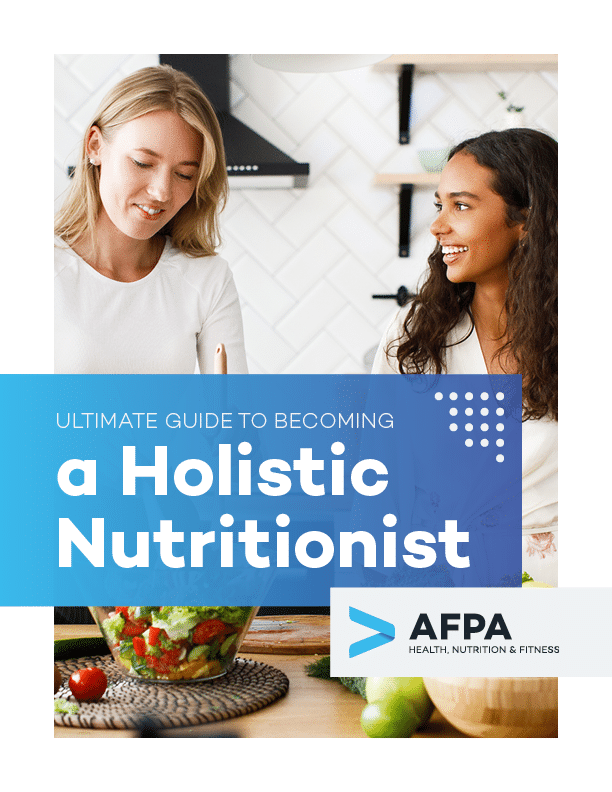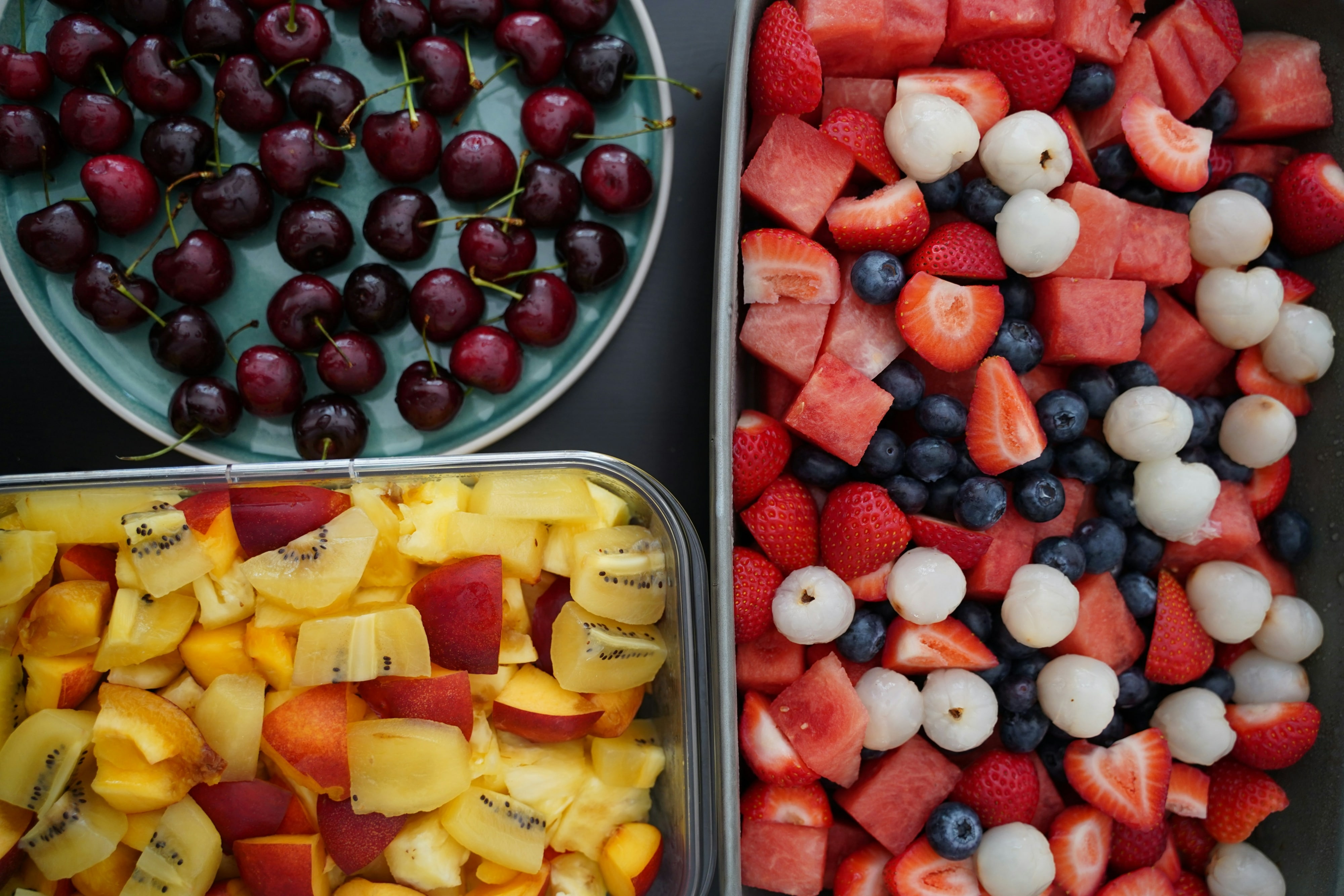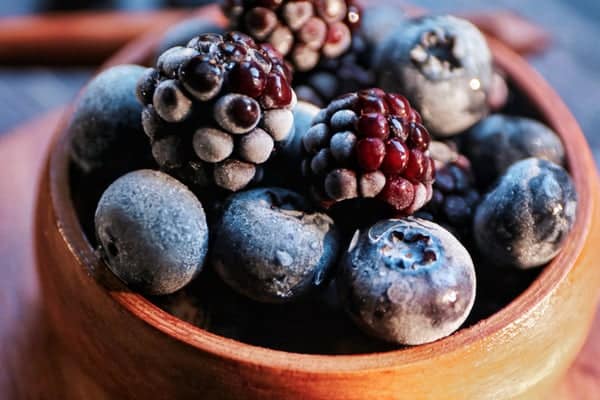How to Not Just Survive, but Thrive During the Holiday Season
The holiday season is a time of joy, celebration, and, let’s face it, lots of delicious food. While the festivities bring ample opportunities for indulgence, they also present a unique set of challenges for those looking to maintain a healthy lifestyle. But fear not! This comprehensive guide aims to help you navigate the holiday season with a balanced approach to eating and living. From planning your meals to making nutrient-packed versions of your favorite holiday dishes, we’ve got you covered. We’ll even delve into the importance of sleep, exercise, and mindful eating during this bustling time of year. So, let’s embark on a journey to make this holiday season your healthiest and happiest yet!
Planning for Success: Cultivating a Mindful Approach to Healthy Habits During the Holidays
The holiday season is a time for joy, celebration, and, of course, delicious food. While it’s tempting to indulge in all the festive treats, it’s also important to maintain a balanced diet for long-term health and well-being. As a nutrition expert, I’m here to guide you through making healthier choices this holiday season without sacrificing flavor or fun.
The Importance of Planning
The saying “If you fail to plan, you plan to fail” holds true, especially when it comes to maintaining a healthy diet during the holidays. Research shows that planning your meals significantly increases the likelihood of making healthier food choices. When you have a plan in place, have a plan in place, you’re less likely to reach for unhealthy options in a moment of weakness.
Setting Realistic Goals
It’s crucial to set achievable goals for yourself. Instead of aiming for perfection, aim for progress. For example, if you usually have three servings of pie, aim for just one this year. Setting unrealistic goals can lead to disappointment and may cause you to abandon your healthy eating plans altogether.
Mindfulness and Portion Control
Being mindful of what and how much you eat can make a significant difference. Studies have found that practicing mindfulness can help you enjoy your food more and reduce overeating. Pay attention to portion sizes and try to savor each bite. This will not only enhance your dining experience but also help you recognize when you’re full.
Flexibility Is Key
While it’s important to have a plan, it’s equally important to be flexible. The holidays are a time for celebration, and sometimes that means deviating from your plan. If you find yourself in a situation where you can’t stick to your original plan, don’t be too hard on yourself. Make the best choice available and move on. Remember, one indulgent meal won’t derail your health goals.
Accountability and Support
Having a support system can be incredibly beneficial. Whether it’s a family member, friend, or health coach, having someone to hold you accountable can keep you on track. In fact, research indicates that social support is a significant factor in achieving and maintaining weight loss.
Courses to Consider
If you’re interested in diving deeper into nutrition and wellness, consider enrolling in AFPA’s Certified Holistic Nutritionist course or the Certified Health and Wellness Coach course. These courses offer comprehensive training that can help you make informed decisions about your health, especially during the holiday season.

Get Your Free Guide to Becoming a Holistic Nutritionist
Learn about the important role of holistic nutritionists, what it takes to be successful as one, and how to build a lucrative, impactful career in nutrition.
Workouts and Accountability: The Dynamic Duo for a Healthy Holiday Season
The Role of Exercise
Exercise plays a crucial role in maintaining a healthy lifestyle, especially during the holiday season when you’re more likely to indulge. Physical activity helps to burn off extra calories, improve mood, and even boost your immune system. A study has shown that even moderate exercise can have a significant impact on reducing the risk of chronic diseases.
The Accountability Factor
Accountability in exercise is often overlooked but is a key component in sticking to a fitness routine. Research indicates that having an accountability partner can increase the likelihood of sticking to an exercise program. Whether it’s a friend, family member, or a certified health coach, having someone to hold you accountable can make a world of difference.
Integrating Workouts into Your Holiday Plans
The holidays can be a busy time, but that doesn’t mean you can’t fit in a workout. Here are some tips:
- Plan Ahead: Just like with your meals, planning your workouts in advance can help you stick to them.
- Be Realistic: If you usually work out for an hour but only have 30 minutes, that’s okay. A shorter workout is better than no workout.
- Involve Family and Friends: Make exercise a group activity. Go for a walk after a holiday meal or have a dance-off to your favorite holiday tunes.
Managing Cravings While Meeting Nutrient Needs: A Balanced Approach
Understanding Cravings
Cravings are a natural part of human behavior, especially during the holidays when we’re surrounded by an array of tempting foods. While it’s okay to indulge occasionally, it’s essential to manage cravings in a way that also meets your nutrient needs. Research suggests that cravings often arise due to emotional triggers rather than actual hunger.
Nutrient-Dense Alternatives
One effective strategy for managing cravings is to opt for nutrient-dense alternatives. For example, if you’re craving something sweet, consider having a piece of fruit instead of a sugary dessert. Fruit not only satisfies your sweet tooth but also provides essential nutrients and fiber. A study on global food production emphasized the importance of nutrient adequacy in our diets, highlighting the need to make informed food choices.
The Role of Protein and Fiber
Protein and fiber are your best friends when it comes to feeling full and satisfied. Including these in your meals can help you manage cravings by keeping you full for longer periods. Research has shown that diets rich in protein and fiber can meet dietary and nutritional needs effectively.
Mindful Eating
Mindful eating is another effective strategy for managing cravings. By paying full attention to what and how you eat, you can better understand your body’s signals and make healthier choices. This approach has been shown to be effective in meeting psychological needs and promoting overall well-being.
Plan Your Meals
Planning your meals in advance can help you make healthier choices and meet your nutrient needs. A study found that meal planning is associated with increased food variety, diet quality, and improved body weight status.
AFPA Courses for Nutritional Guidance
If you’re looking to gain a deeper understanding of nutrition and how to manage cravings effectively, consider enrolling in AFPA’s signature holistic nutrition course. This course offers comprehensive training in nutrition and wellness, equipping you with the skills to make informed decisions about your health.
Make Nutrient-Packed Versions of Your Favorite Holiday Dishes
The Art of Substitution
One of the best ways to enjoy your favorite holiday dishes without guilt is by making nutrient-packed versions of them. The art of substitution can go a long way in enhancing the nutritional profile of traditional recipes. For example, you can replace white flour with whole-grain flour or almond flour to add fiber and nutrients. While there may not be specific research on nutrient-packed versions of all your favorite traditional dishes, the basic concept of using alternative ingredients for nutritional enhancement can usually be easily applied.
Veggie-Packed Casseroles
Casseroles are a holiday staple, but they can be high in calories and low in nutrients. Consider adding a variety of vegetables like spinach, bell peppers, and zucchini to your casserole to boost its nutritional value. Vegetables are rich in vitamins, minerals, and fiber, making them an excellent addition to any dish.
Healthier Desserts
Desserts are often the highlight of holiday meals, but they can also be a source of excess sugar and calories. To make your desserts healthier, consider using natural sweeteners like honey or maple syrup instead of refined sugar. You can also add fruits like berries or apple slices to add natural sweetness and nutrients.
Lean Proteins
Traditional holiday dishes often feature fatty cuts of meat. Opt for leaner proteins like turkey breast or fish to reduce saturated fat intake. These options are not only lower in calories but also rich in essential nutrients like protein and omega-3 fatty acids.
Spice It Up
Spices not only add flavor but also have various health benefits. For instance, cinnamon can help regulate blood sugar levels, while turmeric has anti-inflammatory properties. Don’t shy away from using spices to enhance both the taste and nutritional value of your dishes.
Movement: A Gentle Approach to Aid Digestion and Use Energy
The Importance of Movement
Movement is an essential part of a healthy lifestyle, and it can be particularly beneficial before and after meals. While there may not be specific research on this topic, it is generally accepted that light physical activity can aid in digestion and help regulate blood sugar levels.
Before Meals: A Light Stretch or Walk
Engaging in light physical activity before a meal can prepare your body for digestion. A simple 5-10 minute walk or a light stretching routine can help stimulate blood flow to the digestive system, making it more efficient. Remember, the goal is not to engage in strenuous exercise but to prepare your body for the meal ahead.
After Meals: Gentle Movement for Digestion
After eating, it’s a good idea to engage in some form of gentle movement to aid digestion. This could be a leisurely walk around the block or some light stretching exercises. The idea is to help the digestive system process the food more efficiently and to use some of the energy you’ve just consumed.
Listen to Your Body
It’s crucial to listen to your body and understand its signals. If you’re feeling too full or uncomfortable, it might be best to wait a bit before engaging in any physical activity. The key is to make movement a natural part of your mealtime routine without making it a chore or a source of stress.
Enjoying Food: The Role of Indulgence, Treats, and Special Meals in a Balanced Diet and Healthy Mindset
The Joy of Food
Food is much more than just fuel for our bodies; it’s a source of joy, a way to connect with others, and a means to create and share memories. During the holidays, special meals and treats take center stage, and that’s perfectly okay. In fact, allowing yourself to indulge occasionally can be a part of a balanced diet and a healthy mindset.
The Psychology of Indulgence
Indulging in your favorite foods from time to time can actually be beneficial for your mental well-being. Depriving yourself constantly can lead to stress and may even result in binge eating later on. The key is moderation and mindfulness. Enjoy your treats, savor each bite, and then move on.
Food as a Social Connector
The holidays are a time for gathering with loved ones, and food often plays a central role in these gatherings. Sharing a special meal can strengthen bonds and create lasting memories. It’s a time to enjoy flavors, celebrate traditions, and appreciate the love and effort that goes into preparing holiday meals.
Balance is Key
While it’s okay to indulge during the holidays, it’s also important to maintain a balanced diet. This doesn’t mean you can’t enjoy your favorite treats; it simply means being mindful of portion sizes and making healthier choices when possible. For example, if you’re going to have a slice of pie, maybe skip the whipped cream on top. Or if you’re having a heavy dinner, opt for a lighter lunch.
A Healthy Mindset
Having a healthy relationship with food means understanding that treats and special meals have a place in a balanced diet. It’s about enjoying food without guilt and using it as a way to connect with others and celebrate life’s special moments.
Sleep and Nutrition: The Unsung Heroes of a Healthy Holiday Season
The Connection Between Sleep and Nutrition
Sleep and nutrition are intrinsically linked, affecting not only your physical health but also your emotional well-being. While the holidays can be a busy and stressful time, it’s crucial to prioritize both sleep and nutrition to enjoy the season fully.
Why Sleep Matters
Lack of sleep can have a significant impact on your food choices. When you’re sleep-deprived, you’re more likely to reach for sugary or fatty foods as a quick source of energy. This can lead to weight gain and other health issues over time. Adequate sleep, on the other hand, helps regulate hormones related to hunger and satiety, making it easier to make healthier food choices.
Nutritional Choices for Better Sleep
Certain foods can actually help promote better sleep. Foods rich in tryptophan, magnesium, and melatonin, such as turkey, almonds, and cherries, can help you relax and prepare your body for a restful night’s sleep. While there may not be specific research on this topic, the general consensus is that a balanced diet can positively impact sleep quality.
Tips for Better Sleep During the Holidays
- Stick to a Schedule: Try to go to bed and wake up at the same time every day, even during the holidays.
- Create a Relaxing Bedtime Routine: This could include reading a book, taking a warm bath, or doing some light stretching.
- Limit Caffeine and Alcohol: Both can interfere with sleep quality, so it’s best to limit consumption, especially close to bedtime.
Slowing Down When You Eat: Navigating the Fast-Paced Holidays
The Benefits of Eating Slowly
Eating slowly has numerous benefits, including better digestion, increased satiety, and greater enjoyment of your food. When you eat quickly, you’re more likely to consume more calories than you need, leading to weight gain and other health issues. Slowing down allows your brain time to receive the “full” signal from your stomach, helping you eat just the right amount.
The Challenge of the Holidays
The holidays can be a whirlwind of activities, making it difficult to slow down and savor your meals. With family gatherings, parties, and other events, you may find yourself eating on the go or rushing through meals to get to the next activity. However, it’s important to make time to enjoy your food, both for the sake of your digestive health and your overall well-being.
Tips for Slowing Down
- Be Mindful: Pay attention to what you’re eating. Savor the flavors, textures, and aromas of your food.
- Chew Thoroughly: Take the time to chew your food properly. This not only aids in digestion but also helps you slow down.
- Put Down Your Utensils: Make it a habit to put down your fork or spoon between bites. This simple act can help you slow down and be more mindful of what you’re eating.
- Engage in Conversation: Use mealtime as an opportunity to connect with loved ones. Engaging in conversation can naturally slow down your eating pace.
- Use Smaller Plates: Smaller plates can help you control portion sizes, making it easier to slow down and savor your food.
Frequently Asked Questions (FAQ)
Is It Okay to Indulge During the Holidays?
Absolutely! Indulgence has its place in a balanced diet and a healthy mindset. The key is moderation and mindfulness. Enjoy your treats, but also make healthier choices when possible. For more on this, refer to the section on “Enjoying Food: The Role of Indulgence, Treats, and Special Meals in a Balanced Diet and Healthy Mindset.”
Why Should You Eat Healthy on Holidays?
Eating healthy during the holidays helps you maintain your overall well-being, keeps your energy levels stable, and can even enhance your mood. It’s a way to show love and care for yourself and your loved ones. For more insights, check out the section on “The Importance of Planning.”
What Are Some Tips for Good Nutrition When Eating Out?
- Choose grilled or baked options over fried.
- Opt for dishes with plenty of vegetables.
- Be mindful of portion sizes.
- Skip sugary drinks and opt for water or herbal teas.
What Are Key Tips for Healthy Eating?
- Plan your meals in advance.
- Be mindful of portion sizes.
- Include a variety of fruits and vegetables.
- Opt for whole grains over refined grains.
- Limit added sugars and saturated fats.
How Do You Keep Your Diet Balanced with Competing Priorities?
Prioritize meal planning and preparation, even when you’re busy. Make use of downtime to prepare healthy snacks and meals that you can grab on the go. Also, don’t forget to be flexible; it’s okay to deviate from your plan occasionally. For more tips, see the section on “If You Fail to Plan, You Plan to Fail.”
How Can You Eat Healthy During the Holidays?
Focus on portion control, choose nutrient-dense foods, and be mindful of your choices. For a comprehensive guide, refer to the section on “Managing Cravings While Meeting Nutrient Needs.”
How Do You Handle Holidays When You Have to Follow a Special Diet?
- Plan ahead and bring your own dishes if necessary.
- Communicate your dietary needs to your host in advance.
- Focus on what you can eat rather than what you can’t.
How Can You Make Christmas Dinner Healthier?
- Use whole-grain flour in recipes.
- Opt for lean proteins.
- Include a variety of vegetables.
- Use natural sweeteners in desserts.
For detailed tips, refer to the section on “Make Nutrient-Packed Versions of Your Favorite Holiday Dishes.”
What Is a Good Holiday Meal?
A good holiday meal is one that brings joy and satisfaction while also providing nutritional value. It includes a balance of protein, healthy fats, and carbohydrates, along with a variety of fruits and vegetables.
Main Takeaways
The holiday season is a special time to celebrate with loved ones, indulge in festive treats, and create lasting memories. However, it’s also an important time to focus on your health and well-being. As we’ve explored in this guide, a balanced approach to nutrition, exercise, and lifestyle choices can help you enjoy the holidays to the fullest without compromising your health goals. Whether it’s planning your meals, incorporating movement into your routine, or finding ways to slow down and savor each bite, small changes can make a big difference. So go ahead, indulge a little, but also make room for healthy choices that nourish both your body and soul. Happy holidays!

Get Your Free Guide to Becoming a Holistic Nutritionist
Learn about the important role of holistic nutritionists, what it takes to be successful as one, and how to build a lucrative, impactful career in nutrition.
References
- https://www.ncbi.nlm.nih.gov/pmc/articles/PMC5065661/
- https://www.mdpi.com/2076-2615/12/23/3277
- https://www.ncbi.nlm.nih.gov/pmc/articles/PMC10002128/
- https://www.frontiersin.org/articles/10.3389/fnut.2021.739755/full
- https://www.mdpi.com/2304-8158/10/7/1453 https://psycnet.apa.org/doiLanding?doi=10.1037%2Fcdp0000510
- https://ijbnpa.biomedcentral.com/articles/10.1186/s12966-017-0461-7?ref=blog



